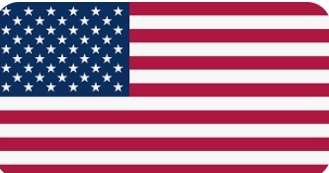In a recent address, U.S. Mission Commercial Counselor Julie LeBlanc reaffirmed the enduring dedication of the United States to Africa and specifically Nigeria.
LeBlanc underscored pivotal initiatives such as the African Growth and Opportunity Act (AGOA) and the African Continental Free Trade Area (AfCTA), underscoring the depth of U.S. trade and investment partnerships.
During her discourse, LeBlanc reiterated America’s steadfast commitment to bolstering economic and commercial ties with African nations.
She referenced Secretary of State Anthony Blinken’s recent tour of West Africa, which encompassed Nigeria, Cabo Verde, Cote d’Ivoire, and Angola.
This visit, aimed at fortifying security alliances, health endeavours, and economic progress, underscored the U.S.’s enduring interest in the region.
LeBlanc echoed Secretary Blinken’s assertion that “The future is African,” emphasising the vast prospects and imperative of engaging with Africa.
Reflecting on the preceding year, LeBlanc spotlighted the considerable headway achieved in U.S.-Africa trade and investment.
In 2023 alone, the United States championed and finalised 547 novel deals, tallying an estimated $14.2 billion in bilateral trade and investment with African nations—a striking 60% surge compared to 2022, signifying burgeoning economic interconnections between the U.S. and Africa.
These investments have engendered inclusive growth, fortified supply chains, and engendered high-calibre employment opportunities.
LeBlanc delineated several pivotal milestones, including the International Development Finance Corporation’s allocation of over $2 billion across 46 transactions in Africa.
She also lauded the U.S.-Trade and Development Agency’s facilitation of 15 project preparation grants, harnessing upwards of $3.4 billion in infrastructure financing.
Additionally, LeBlanc underscored the Department of Commerce’s endorsement of nearly $3.6 billion in U.S. exports to Africa and the establishment of new Foreign Commercial Service offices.
Expressing sanguinity regarding the trajectory of U.S.-Africa trade and investment relations, LeBlanc accentuated the U.S. government’s concerted collaboration with African allies and diverse governmental departments.
She cited the U.S.-African Continental Free Trade Area Memorandum of Understanding as a noteworthy initiative.
The U.S.’s allocation of $160 million to bolster the African Continental Free Trade Area underscores its commitment to augmenting trade in goods and services, digital commerce, and bolstering the Women and Youth Protocol of the agreement.
LeBlanc also broached the subject of AGOA’s future, underscoring President Biden’s resolute backing for its renewal and modernisation.
She stressed the imperative of adapting AGOA to contemporary economic realities, acknowledging the fluid transformations in Africa and the global economic landscape.
LeBlanc referenced other U.S. initiatives aimed at amplifying trade and investment, including the Strategic Trade and Investment Partnership with Kenya and the Prosper Africa endeavour, which streamlines business activities in U.S. and African markets.
Shifting the spotlight to Nigeria, LeBlanc acknowledged its pivotal status as one of the continent’s foremost economies.
She cited the bilateral trade exceeding $10.6 billion in 2022 and U.S. foreign direct investment amounting to $5.6 billion, positioning Nigeria as the second-largest trading ally in Africa.
LeBlanc underscored the burgeoning technology-driven collaboration between the U.S. and Nigeria, underlining the significant strides made in fostering innovation and sustainable economic growth.











